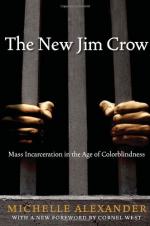|
This section contains 884 words (approx. 3 pages at 400 words per page) |

|
The Cruel Hand Summary and Analysis
When racial segregation became illegal and unacceptable for many Americans after the successes of the Civil Rights Movement in the 1960s, criminals, as opposed to black Americans, emerged as the new underclass. After a drug conviction, felons are assured a range of discrimination in housing, public benefits like food stamps and Medicaid, and employment. In addition to this legalized discrimination, criminals face social neglect, and are often distrusted and ostracized in their communities and families. Unfortunately, criminal defendants that plead guilty to minor drug charges are usually not aware of the consequences beyond incarceration. Indeed, judges are not required to inform defendants of the important rights they are forfeiting when they plead guilty to felonies. The label of "criminal" that sticks with ex-offenders for the rest of their lives, "make[s] it virtually impossible...to integrate into...
(read more from the The Cruel Hand Summary)
|
This section contains 884 words (approx. 3 pages at 400 words per page) |

|




